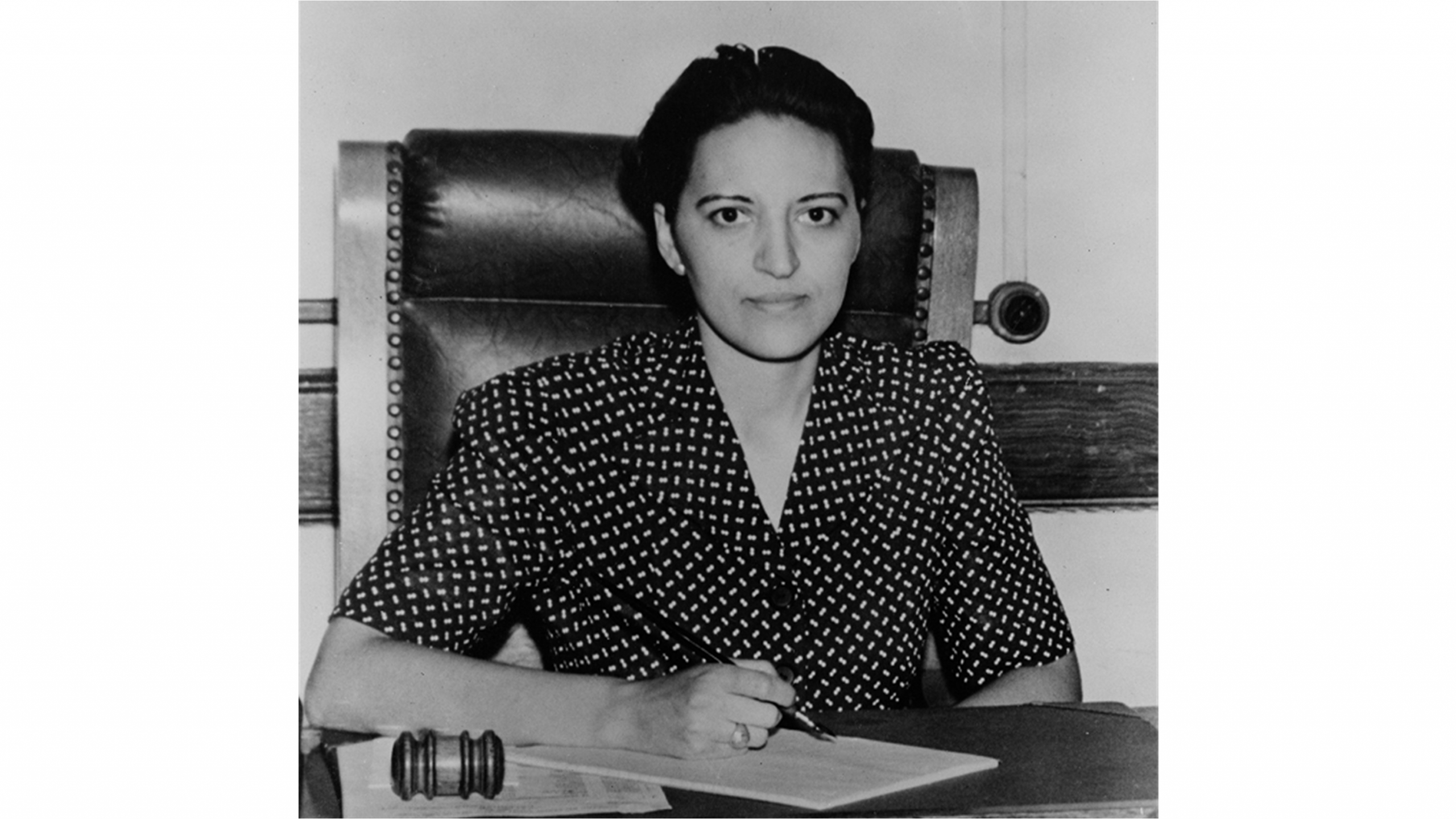In 2021, the Society is celebrating Black History Month every month, spending the year looking back at the impact of Black New Yorkers on the legal history of the state. This article is adapted from an article by David L. Goodwin that was first published in the Dutchess County Historical Society Yearbook. The article in full appears here.
Born and raised in Poughkeepsie, but with a career in the five boroughs of New York City, Jane Matilda Bolin (1908–2007) is best known for a particular “first” of groundbreaking magnitude. She holds the honor of being the first African American judge in the entire United States, joining the bench of New York City’s Domestic Relations Court in 1939. Her appointment by Mayor Fiorello La Guardia, which came as some surprise to Bolin herself — summoned with her husband to an audience with the mayor at the 1939 World’s Fair, she was not informed of the mayor’s intentions in advance — made “news around the world.”[2]
About that news: in announcing this historical judgeship, some outlets hedged the call, if ever so slightly. The Chicago Defender, which “chronicled and catalyzed [the African American] community’s greatest accomplishments for nearly a century,”[3] proudly announced that La Guardia had “smashed a precedent for the entire United States” because Bolin was “thought to be the first Race woman judge to be appointed in this country.”[4] About two months later, the Defender had eliminated the qualifier, describing Judge Bolin as the “first Race woman to serve as a judge in the history of America.”[5] And despite the shifting nature of historical inquiry, her title has held firm; on the sad occasion of her obituary, she was still, resolutely, “the first black woman in the United States to become a judge.”[6]
Judge Bolin served with distinction, reappointed to the bench by three different mayors — O’Dwyer in 1949 (although not without some politicking), Wagner in 1959, and Lindsay in 1969[7] — while weathering the reorganization of the Domestic Relations Court into the Family Court in 1962.[8] She retired in 1979, but only reluctantly; in an interview conducted when Judge Bolin was in her early 80s, she made clear that, were it up to her, she would still be serving on the Family Court.[9]
Judgeship was not Jane Bolin’s only first, or even her first first of comparable magnitude. Among her tally, she was the first black woman to graduate from Yale Law School, to join the New York City Bar, and to work in the office of the City’s Corporation Counsel.[10] She followed in the footsteps of other notable trailblazers, such as Charlotte E. Ray, who became the first African American woman lawyer in 1872[11]; Edwin Archer Randolph, the first African American to graduate from Yale Law School (and also the first admitted to the Connecticut bar)[12]; and Florence Allen, the first woman named to a United States Court of Appeals.[13] In turn, Judge Bolin paved the way for still other firsts. As Justice L. Priscilla Hall would observe in 1996, upon the retirement of the first African American woman appointed to the Appellate Term of the New York State Supreme Court:
The connection between black women judges in New York City, New York State and indeed these United States is immediate, current and direct. . . . It is so recent that Jane Matilda Bolin, the first African American woman judge in the United States, appointed in 1939, still lives. It is so immediate that Constance Baker Motley, the first African American woman named to the federal judiciary, still sits, senior status, on the bench. It is so current the first black woman to be appointed a judge on the United States Court of Appeals, Amalya L. Kearse, presides daily.[14]
Justice Hall’s statements are echoed in the public event Commemorating Hon. Jane Bolin YLS ’31 and Honoring Black Woman Judges of Past and Present. After a review Judge Bolin’s pioneering life by Dr. Jacqueline McLeod, a panel of judges, Hon. Leslie Abrams Gardner, Hon. Dianne T. Renwick, Hon. Angela C. Robinson, and Hon. Rowan Wilson, discussed Judge Bolin’s impact on the judiciary. Watch below!
Catch up on the rest of our Every Month is Black History Month posts.

